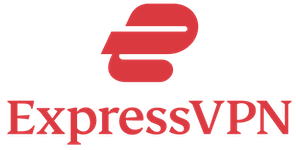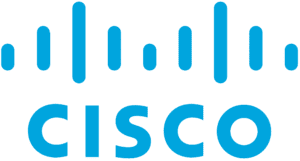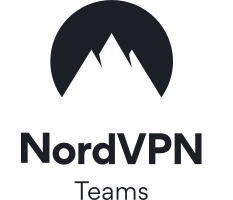

Many businesses rely on Virtual Private Networks (VPNs) to provide remote access to company resources. Here, we discuss the best VPN solutions for businesses, as well as important features to consider.
Read more: Best Server Security Services
ServerWatch reviewed many VPNs. Here are our top picks, in no particular order:

Value Proposition
Ananda Networks targets small and medium businesses, as well as enterprises. Its service allows businesses to create their own private, secure, high-performance, low-latency networks to connect remote employees and edge devices to applications in the data center or in the cloud.
Key Differentiators

Value Proposition
Twingate positions itself as an easy way for IT departments to get rid of aging, internally managed VPN equipment. Instead, companies can hand over these functions to an external provider that can rapidly implement a modern Zero Trust network in the cloud. IT teams can use it to configure a software-defined perimeter without changing infrastructure, and centrally manage user access to internal apps, whether they are on-premises or in the cloud.
Key Differentiators

Value Proposition
Untangle provides a number of choices for VPN connectivity for businesses, which include IPsec VPN, OpenVPN, and WireGuard VPN. WireGuard is the newest of these offerings; it offers a fast, reliable technology with high-level cryptography.
Key Differentiators

Value Proposition
ExpressVPN offers secure access worldwide to connect reliably from anywhere to anywhere. Its network of servers spans 94 countries. This service caters well to single users, as well as relatively small or changing groups of users who need a VPN without the more expensive bells and whistles of other services.
Key Differentiators

Value Proposition
Cisco AnyConnect Secure Mobility Client provides remote workers with secure access to the enterprise network from any device, while also protecting the organization. It connects more than 180 million endpoints and serves 60,000 organizations.
It offers simplified deployment, configuration, updates, and management with one agent for VPN, device compliance, web content inspection, threat detection and remediation, and contextual behavior data. Cisco AnyConnect can enable the distribution of Cisco Secure Endpoint to remote users to detect and stop threats.
Key Differentiators

Value Proposition
NordVPN Teams is the enterprise version of the well-known consumer and individual VPN product. It enables IT to manage every user account and feature from one centralized control panel. It is easy to use, and is said to fit organizations of all sizes — though it lacks some of the features of other enterprise-class tools.
Key Differentiators

Value Proposition
Proton made a name for itself by offering highly secure email communication. Organizations sending sensitive or confidential information often use it. As such, a VPN from Proton will undoubtedly have a high stress on security. Its secure VPN sends internet traffic through an encrypted VPN tunnel. Passwords and confidential data stay safe, even over public or untrusted internet connections.
Key Differentiators

Value Proposition
Perimeter 81 provides several VPN packages. The Enterprise package is customizable and equipped with enterprise-ready security features to manage the network. It is available on-site and in the cloud. It offers Zero Trust, agentless access, as well as activity audits and reports to monitor logins, gateway deployments, and app connections.
Unlike traditional VPN service providers, which only offer secure remote access through an agent, Perimeter 81 also offers agentless Zero Trust Application Access. This enables granular, secure, and policy-based access. All corporate users are provided with 24/7 customer support via in-app chat, email, or phone. Further, a dedicated solution architect assists with all your account’s needs.
Key Differentiators
Virtual Private Networks (VPNs) are a way to secure remote network access to cloud-based and on-premises resources. VPNs offer policy-based and segmented access to a private network, which shields sensitive resources from the internet. Employees can log in and communicate securely to others in the company.
For those working remotely, a VPN is a way for them to continue to have secure access to corporate intranets and databases. But they must properly complete authentication procedures to do so.
VPNs offer policy-based and segmented access to a private network.
Another use case for VPNs is in site-to-site links between the head office and its branch offices or partner sites. Again, authentication is everything. These links must only be available to authorized users.
As such, VPNs are available via on-premises hardware and software, as on-premises software-only applications, or via the cloud. They should be able to accommodate a wide variety of devices, while also providing WiFi connections to enterprise data, sales systems, and other company applications.
Once authorized, users utilize an encrypted tunnel to connect and communicate. Other layers of protection include site-to-site internet protocol security (IPsec) to establish, as well as various access controls and access policies.
Read more: Using Zero Trust Security to Protect Applications and Databases
When selecting a VPN tool or vendor, it is vital to ensure the appropriate levels of security are present. IPsec tunneling, encryption support such as AES-256, 3DES-168, and access controls are essential elements.
Another selection criterion is latency. If employees are waiting several minutes for a connection, or if it takes forever for pages to load and attachments to upload/download, personnel will drift away from the VPN and use a less secure public internet connections instead. Latency, therefore, must be kept to a minimum.
Whatever VPN is chosen, it should easily integrate with any cloud platforms or corporate applications. Incompatibilities with popular products in heavy use in the enterprise like Salesforce, Amazon Web Services, Microsoft Azure, or Google applications should be avoided.
Other factors are scale and support. Some organizations need basic VPN services and minimal support. Others need a raft of enterprise features and top-notch support. It is a case of matching these features to the vendor. Otherwise, you could either overpay for features you don’t need, or be left with a corporate VPN that is grossly inadequate.
Differentiate, too, between consumer-grade VPN services and business VPN services. The consumer class is cheaper, but offers limited features. All they do is hide the user IP addresses, secure access over WiFi, and facilitate basic communication, access, and content consumption.
Business VPNs basically run VPN gateways in multiple data centers (or PoPs) that they own. This offers greater security while eliminating the need to install on-premises appliances. The business services also provide better support for cloud connectivity.
Read next: Best Server Security Tools
Property of TechnologyAdvice. © 2025 TechnologyAdvice. All Rights Reserved
Advertiser Disclosure: Some of the products that appear on this site are from companies from which TechnologyAdvice receives compensation. This compensation may impact how and where products appear on this site including, for example, the order in which they appear. TechnologyAdvice does not include all companies or all types of products available in the marketplace.